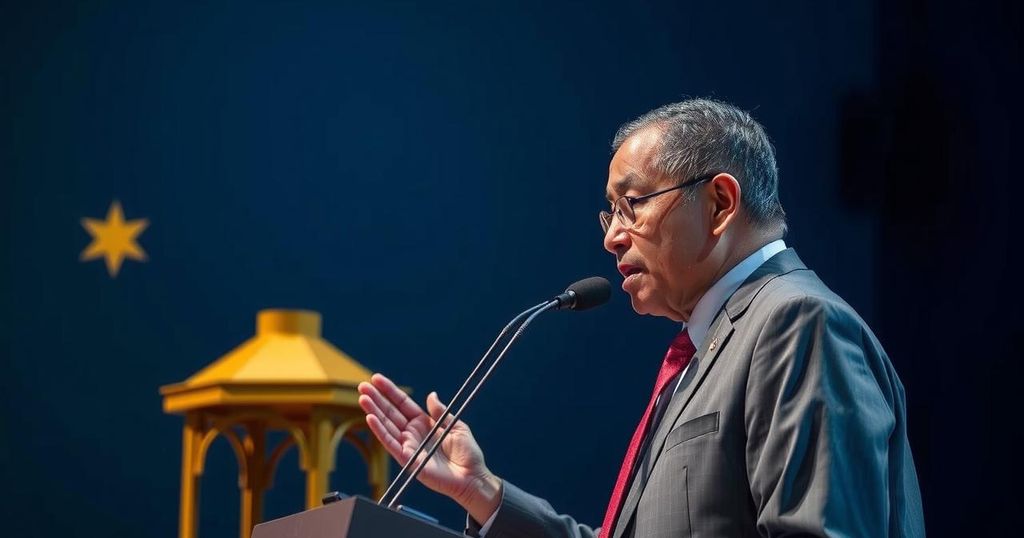Mauritius conducted parliamentary elections clouded by a phone-tapping scandal, with concerns over electoral integrity and potential fraud. Prime Minister Pravind Jugnauth’s administration faced challenges, particularly after leaked recordings emerged. Voter turnout was reported at 40% by midday, with both major political forces pledging to address pressing social issues. The elections follow a significant agreement regarding the Chagos Islands, raising concerns over governance and stability in the nation’s political landscape.
Mauritius held a closely contested parliamentary election amidst allegations of a phone-tapping scandal that has raised concerns regarding the integrity of the electoral process in one of Africa’s most stable democracies. With police deployed at polling stations, opposition leaders highlighted the potential for electoral fraud. Prime Minister Pravind Jugnauth’s administration aimed for re-election following a significant transfer of sovereignty over the Chagos Islands from Britain, but the emergence of leaked recordings of sensitive conversations involving political figures has marred the atmosphere surrounding the elections. Despite an initial social media ban imposed by authorities in response to the scandal, officials later retracted the decision, acknowledging public outcry. The opposition Alliance of Change, led by former Prime Minister Navin Ramgoolam, is challenging Jugnauth’s Militant Socialist Movement, which currently holds a majority in the National Assembly. Voter turnout by midday was reported at 40%, and the election commission promised a transparent electoral process. Analysts are warning that while Mauritius has experienced remarkable economic growth, concerns over governance and corruption remain prevalent. Political power in Mauritius has been predominantly held by a few families since the country’s independence in 1968, and both major parties during the campaigns have pledged to tackle poverty and elevate living standards. The elections also come on the heels of a momentous agreement regarding the Chagos Islands, yet there are fears regarding the future implications of military presence in the region.
The elections in Mauritius represent a significant event in the country’s political landscape, marked by a backdrop of a historical agreement with Britain that returned the Chagos Islands to Mauritius. This deal, while seen as a milestone in the nation’s decolonization efforts, has also stirred debates about the ongoing military lease held by the United States. The election highlights the ongoing struggle for political transparency in the face of rising corruption and the suppression of dissent, particularly notable in the context of leaked recordings that have raised alarm among voters regarding the electoral integrity.
In conclusion, the parliamentary elections in Mauritius are overshadowed by serious allegations of corruption and the effects of a phone-tapping scandal. The political atmosphere reflects deep-seated concerns about governance and the protection of democratic principles. As the nation’s historical political families face challenges from emerging parties, the outcome of this election will be pivotal in shaping the future of Mauritius’s governance and its commitment to democratic ideals.
Original Source: www.bryantimes.com






